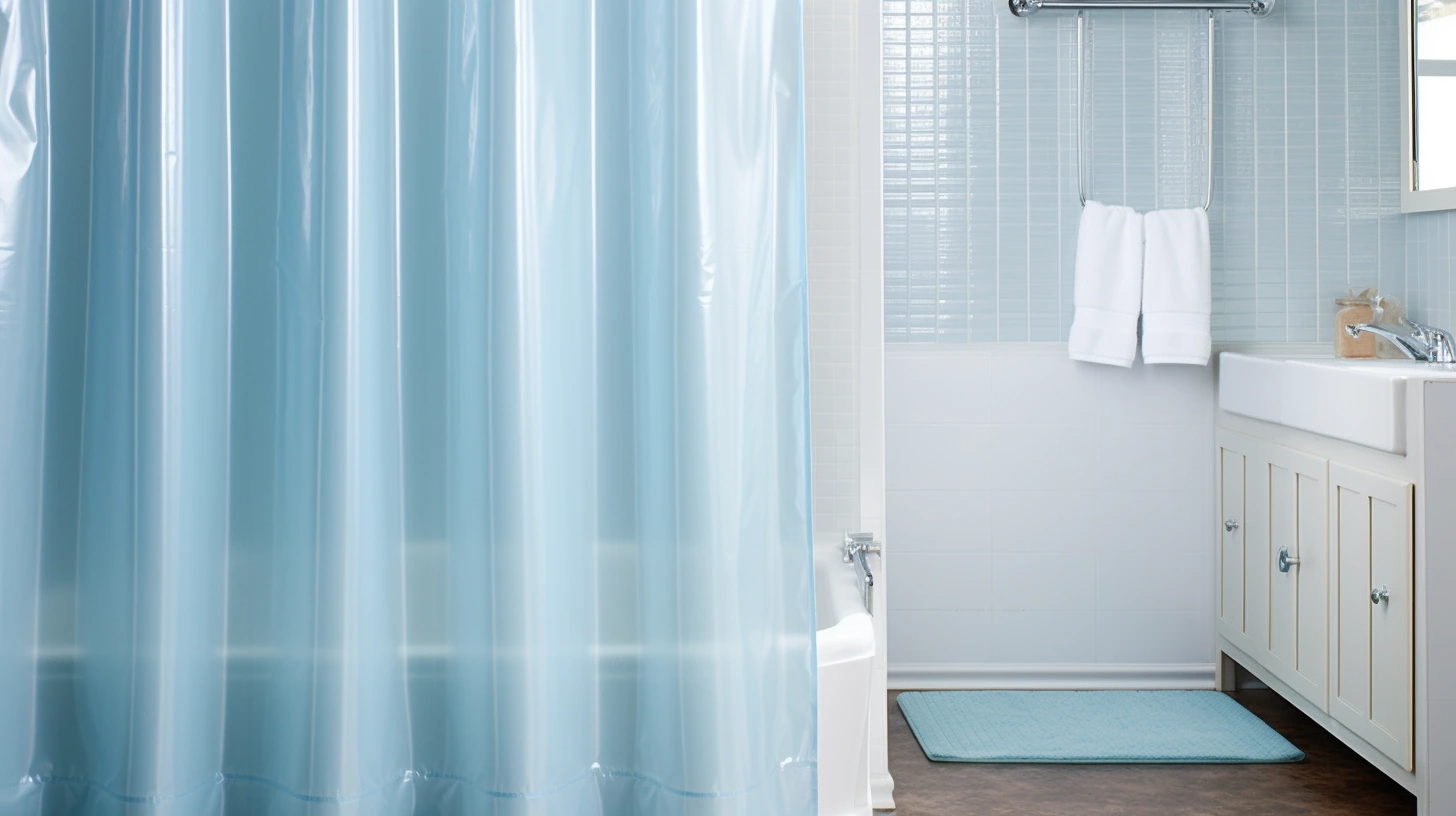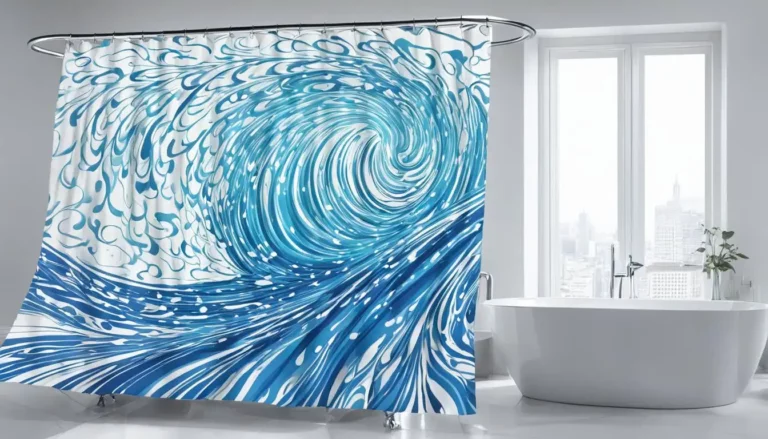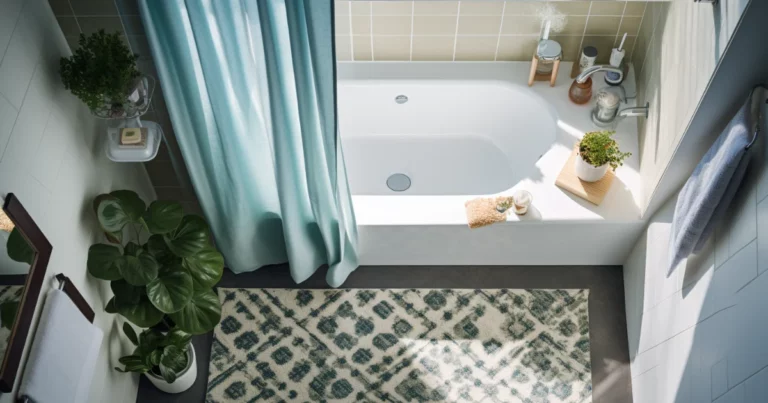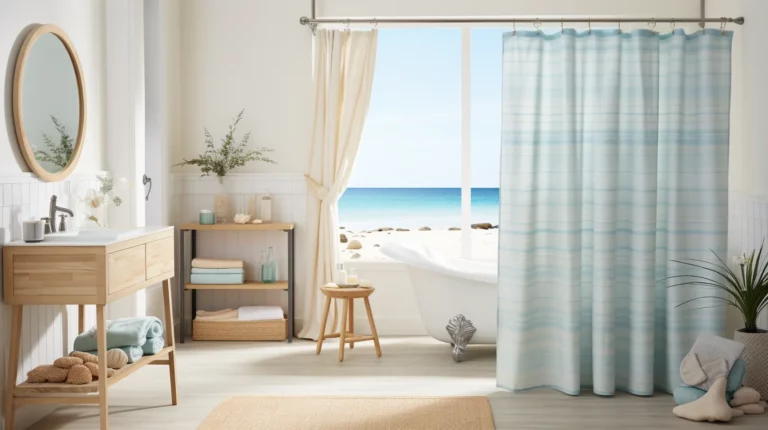Are Vinyl Shower Curtains Toxic? 4 Key Insights Reveal the Truth!
You’ve probably smelled that “new shower curtain” scent and wondered if it’s safe. Recent studies show vinyl shower curtains can emit over 100 toxic chemicals into the air. This article will break down the risks and offer safer alternatives for your bathroom.
Keep reading to clear the air.
Table of Contents
Are Vinyl Shower Curtains Toxic? Key Takeaways
- Vinyl shower curtains can emit over 100 toxic chemicals, like phthalates and VOCs.
- Long-term exposure to these chemicals can lead to health problems, such as respiratory issues and central nervous system effects.
- Safer alternatives include polyester, PVC-free, cotton, and hemp shower curtains.
Understanding Vinyl Shower Curtains
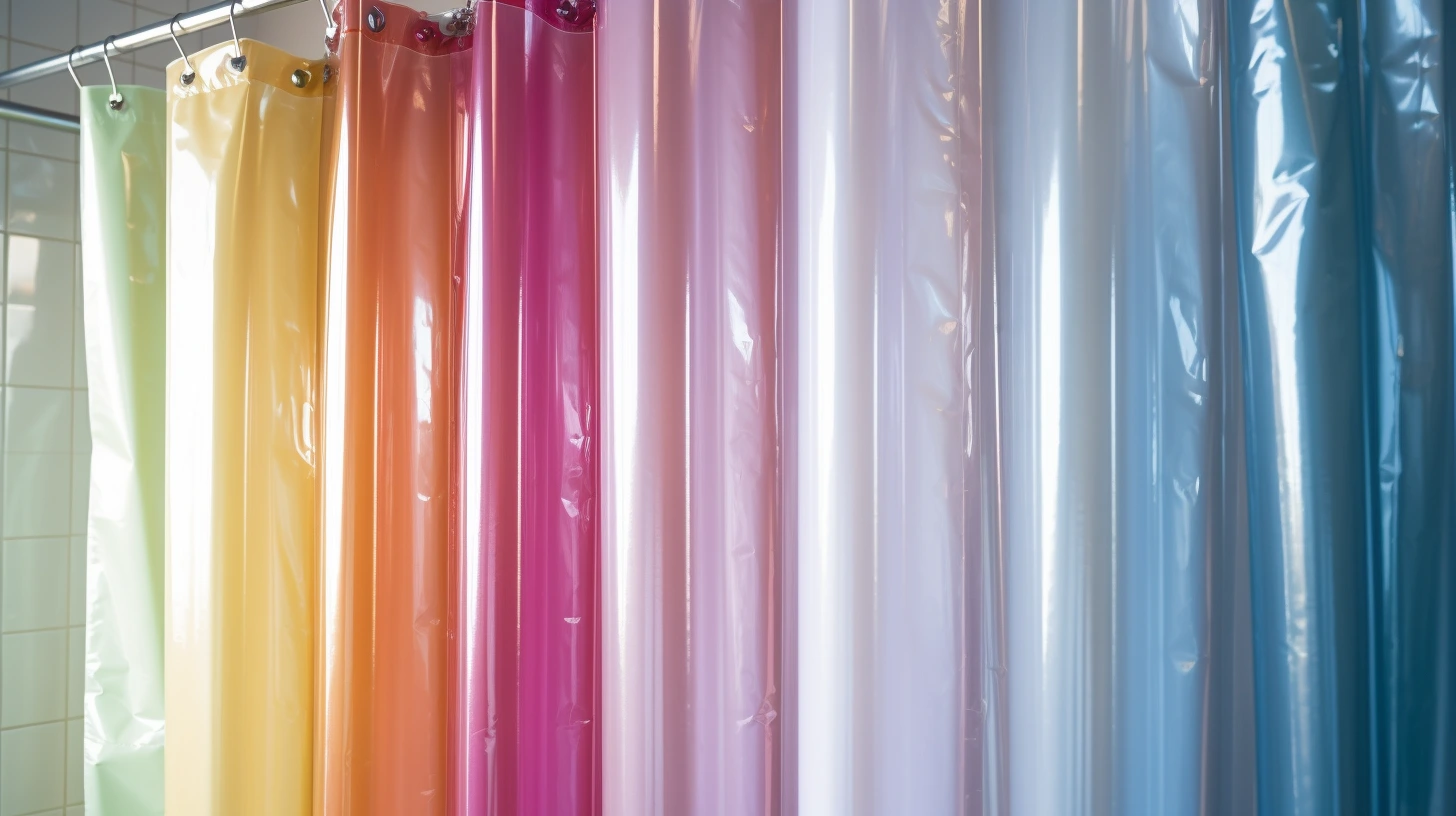
Shower curtains made of vinyl are popular in many bathrooms. They are plastic shower curtains and often contain polyvinyl chloride (PVC). This material is durable and keeps water inside the shower.
But, PVC can have hidden risks. Shower curtains can release toxic chemicals into your home’s air. These chemicals might harm your health over time.
Potential Toxins in Vinyl Shower Curtains
Vinyl shower curtains may contain potential toxins such as phthalates and volatile organic compounds (VOCs). They can pose health risks. To learn more about the dangers of these toxins and how to reduce your exposure, continue reading.
Phthalates
Phthalates are chemicals often found in vinyl shower curtains. They make plastic soft and flexible. But these phthalates can be harmful. When your shower curtain heats up, phthalates may be released into the air. You might breathe them in without knowing.
VOCs
VOCs are harmful chemicals that can be released from vinyl shower curtains, posing health risks. Studies have found as many as 108 VOCs being emitted from these curtains. This includes compounds linked to respiratory irritation and long-term damage to the liver and kidneys.
These compounds can enter the air in your home and replicate temperature and humidity, potentially increasing their concentrations.
How Vinyl Shower Curtains Release Toxic Chemicals
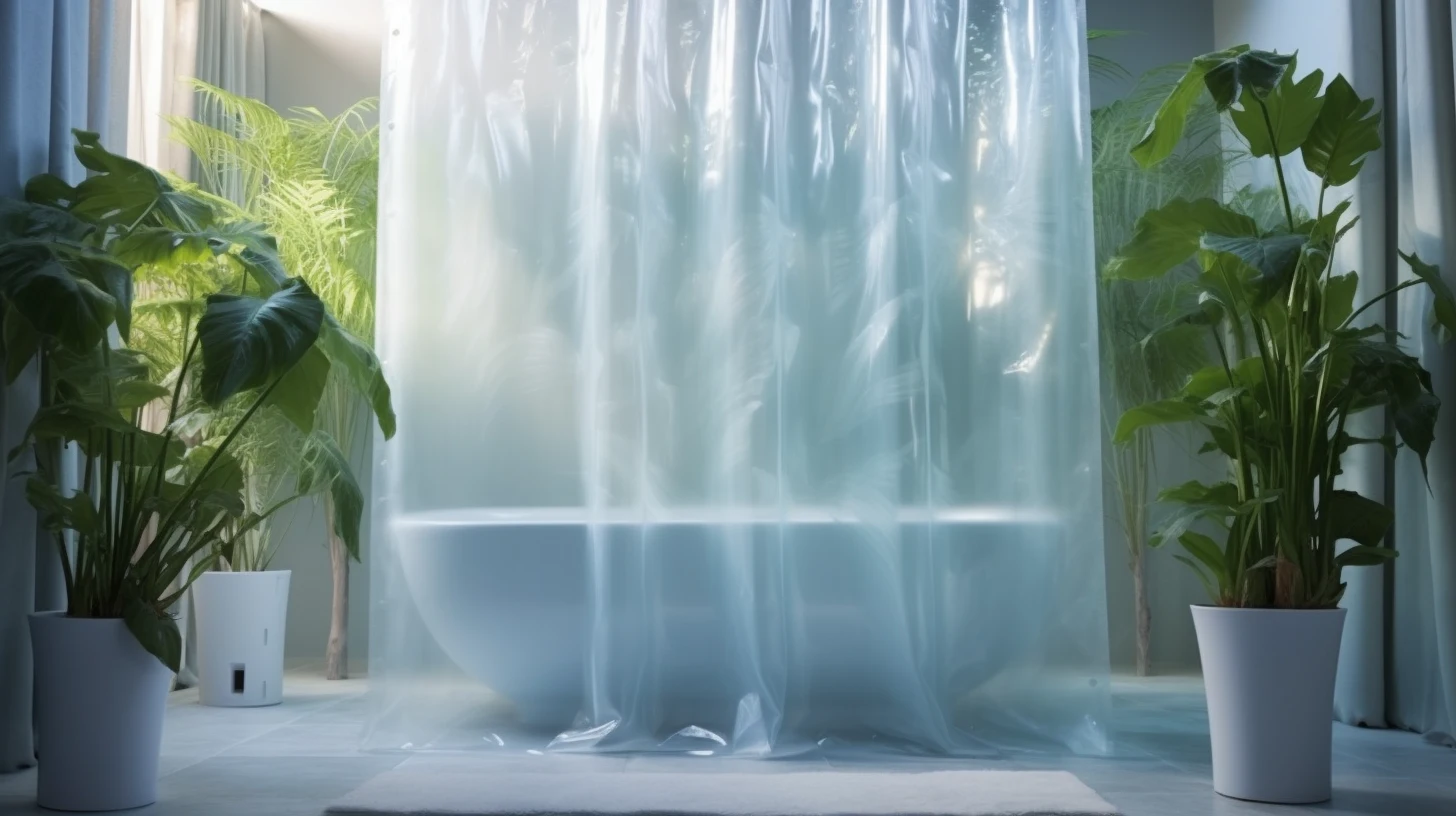
Vinyl shower curtains release toxic chemicals through exposure to heat and sunlight, and biodegradation. These factors can lead to the release of phthalates and VOCs into your home environment.
Exposure to heat and sunlight
Vinyl shower curtains can release toxic chemicals when exposed to heat and sunlight. The heat from showers or baths can cause VOCs and phthalates to off-gas from the curtain material into the air, affecting indoor air quality.
Sunlight exposure may also accelerate the breakdown of PVC in vinyl shower curtains, releasing harmful chemicals.
Biodegradation
As vinyl shower curtains release toxic chemicals, they can also undergo biodegradation over time. This process involves the breakdown of the material into smaller compounds. This will potentially release harmful toxins into the environment.
Consequently, when not disposed of properly, vinyl shower curtains contribute to environmental pollution by releasing phthalates and other toxic substances during degradation.
Health Effects of Using Toxic Shower Curtains

Vinyl shower curtains can contribute to respiratory issues due to the release of VOCs and phthalates. When exposed to heat and sunlight, these toxic chemicals are released into the air. They potentially cause respiratory irritation and other health concerns.
Long-term exposure may lead to allergies, skin irritations, and even damage to the central nervous system. It’s crucial to consider non-toxic alternatives for a healthier indoor environment.
Proper ventilation and regular cleaning can also help reduce the risks associated with vinyl shower curtains in your home.
Non-Toxic Alternatives to Vinyl Shower Curtains
When looking for non-toxic alternatives to vinyl shower curtains, consider options like polyester, fabric, PVC-free, cotton, and hemp shower curtains. These alternatives are safer for your health and the environment.
Polyester shower curtains
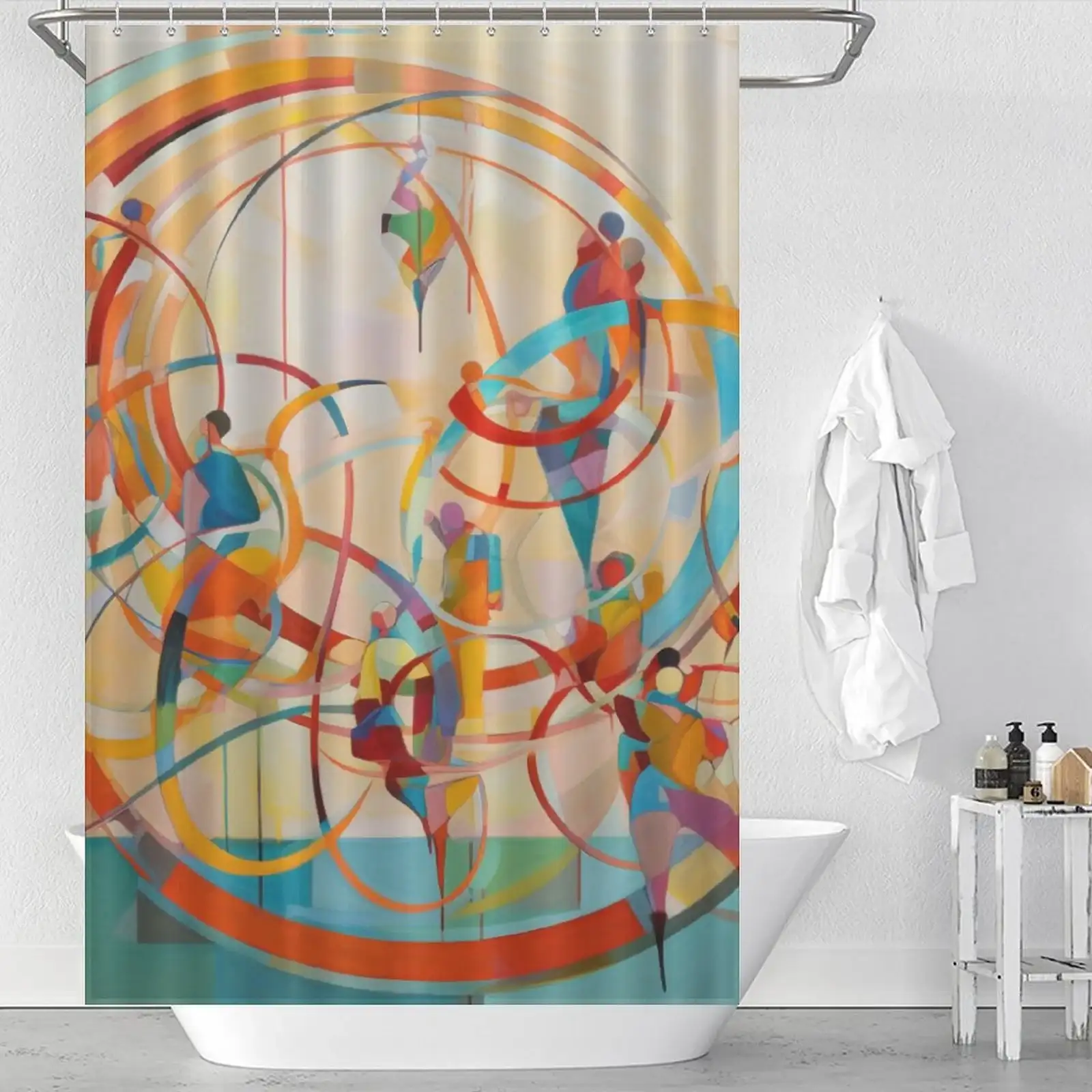
Opt for a polyester shower curtain as a non-toxic alternative to vinyl. Polyester shower curtains do not contain PVC or phthalates. They can reduce the risk of off-gassing and harmful chemical exposure.
They are also durable, easy to clean, and come in a variety of designs to suit your bathroom decor.
Consider choosing a polyester shower curtain. It provides a safe and eco-friendly option compared to vinyl alternatives. These curtains are readily available at most retailers. They offer you an accessible, stylish, and non-toxic choice for your bathroom space.
PVC-free shower curtains
A PVC-free shower curtain stands out as an excellent choice. Made from materials like PEVA or EVA, these curtains offer a safer option without compromising on quality and durability.
These materials do not contain harmful phthalates or toxic PVC. This makes them environmentally friendly and healthier for indoor air quality. Look for certified PVC-free shower curtains that meet the guidelines for indoor air quality established by reputable organizations to ensure you’re choosing a safe and sustainable option for your bathroom.
Cotton and hemp shower curtains
Choose a cotton or hemp shower curtain as a non-toxic alternative to vinyl. These natural fabrics are free from PVC and phthalates. They reduce your exposure to harmful chemicals. Look for organic options to ensure the highest quality and minimal impact on your health.
Consider a cotton or hemp shower curtain as a healthier choice for your home. By opting for these natural materials, you can create a safer environment without compromising on style or functionality.
How to Minimize Risks Associated with Vinyl Shower Curtains
To reduce the risks of vinyl shower curtains, it is important to take some simple steps. Regular cleaning and maintenance, proper ventilation, and the use of a shower curtain liner can help you minimize your exposure to toxic chemicals. These measures can also help create a healthier bathroom environment.
Proper ventilation
Ensure your bathroom has adequate ventilation. This minimizes the concentration of toxic chemicals released by vinyl shower curtains. Opening a window or using an exhaust fan helps disperse harmful gases and reduces the risk of respiratory irritation.
Proper ventilation also prevents the accumulation of volatile organic compounds. It safeguards your indoor air quality. Maximize airflow in your bathroom to lower exposure to phthalates and PVC, improving overall air safety.
To mitigate the health risks, prioritize proper ventilation in your bathroom space. A well-ventilated area lessens the impact of off-gassing from these products and promotes a healthier environment for you and your family.
Regular cleaning and maintenance
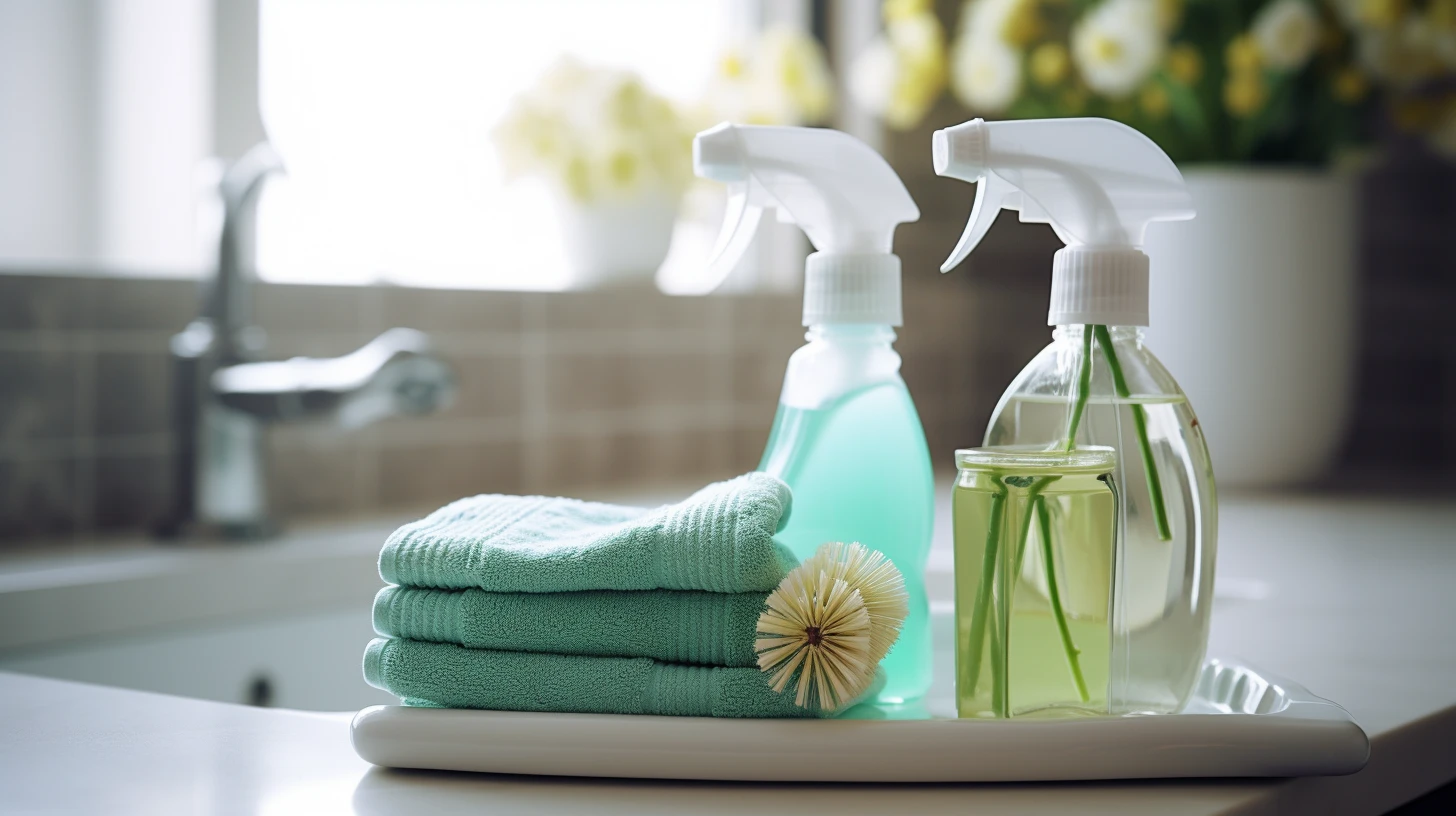
Regular cleaning and maintenance are vital to reduce the release of toxic chemicals. Wiping down the curtain with a mild detergent and water solution can help remove any buildup, reducing the potential for off-gassing.
Additionally, regular washing at recommended intervals can prevent mold and mildew growth. Doing so ensures a healthier environment in your bathroom.
Always ensure proper ventilation during and after cleaning. Allow any remaining fumes to disperse safely. It’s important to consider these maintenance practices as part of your overall health-conscious approach to choosing non-toxic alternatives for your shower curtains.
Using a shower curtain liner
To reduce the risk of your vinyl liner, consider adding a non-toxic shower curtain liner made of PEVA or EVA. These materials do not contain PVC or phthalates. They offer a safer alternative and serve as an effective barrier against water and mildew.
Look for liners labeled “PVC-free” and “non-toxic”. This ensures they meet safety standards established by health organizations.
Using a shower curtain liner can create an extra layer of protection for your bathroom. It prevents water from seeping out, reducing the need for frequent cleaning. Opt for polyester or fabric liners over vinyl ones to minimize exposure to harmful substances. They help promote a healthier and more eco-friendly environment in your home.
Conclusion
In conclusion, vinyl shower curtains can release harmful toxins. You should consider non-toxic alternatives such as polyester or fabric shower curtains. Ensure proper ventilation and regular cleaning to minimize risks.
Choose a safer option for your health and well-being!
FAQs
1. What are vinyl shower curtains made of?
Vinyl shower curtains are often made with polyvinyl chloride, or PVC. These materials may release many toxic chemicals into the air.
2. Why do new vinyl shower curtains smell?
The strong smell you notice from a new vinyl shower curtain is due to volatile organic compounds (VOCs) that get released when it’s unwrapped.
3. Are all shower curtain materials safe?
Not all materials are safe. For example, PEVA shower curtains are safer than PVC as they release fewer toxins and have less impact on indoor air quality.
4. Can a vinyl shower curtain affect my health?
Yes, studies suggest that the VOCs from a PVC shower curtain may cause respiratory irritation and other harm to your health.
5. What kind of non-toxic alternatives exist for shower curtains?
Alternatives include organic cotton, linen, and PEVA. They are less toxic options and better for your non-toxic home environment.
6. How can I be sure my new curtain is less harmful?
When shopping for shower curtains at major retailers, look for certifications or quality seals from U.S. groups like CHEJ or the Work Group for Safe Markets that show reduced chemical content.

